Joy Meets Justice: Cultivating Engaged Learners at Pear Tree
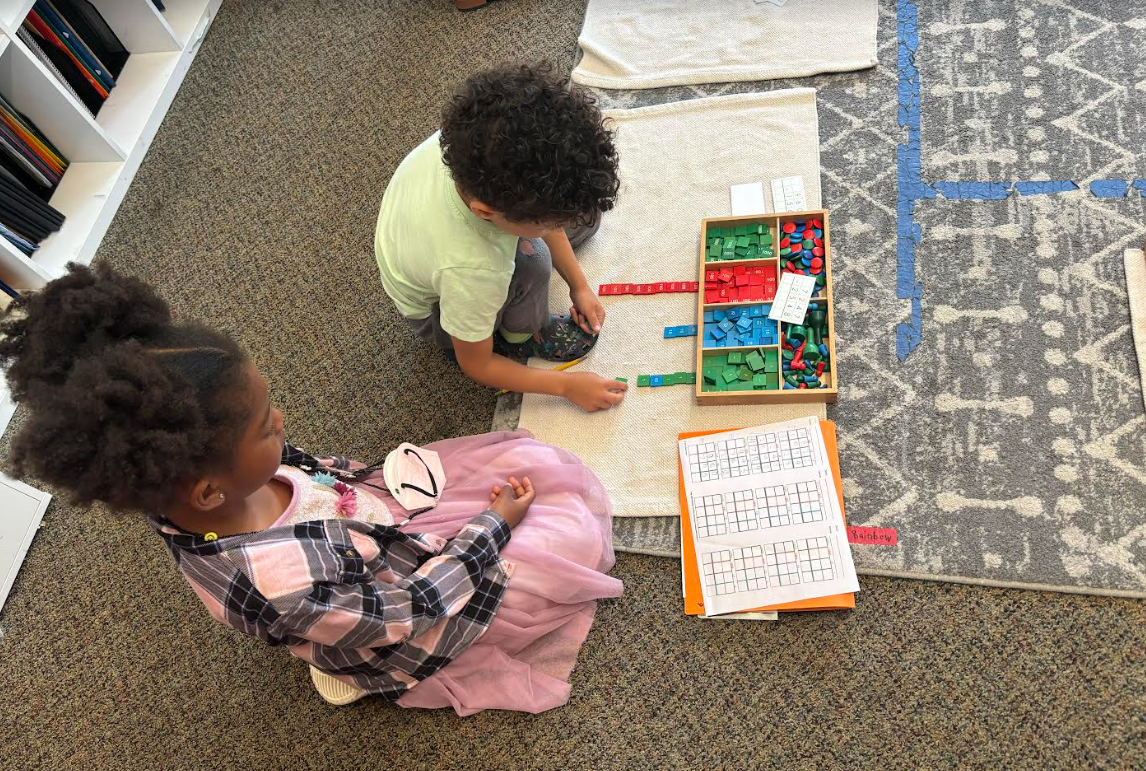
“If a baboon puts its bottom in your face, that means it likes you.” These words, said by a second-grader at the Pear Tree Community School, punctuated a lively, in-depth, discourse-filled presentation on the continent of Africa.
Yes, you read that correctly. A small group of second and third graders facilitated a rigorously researched presentation on the continent of Africa that included information on climate, ecosystems, diverse cultures, and so much more. They shared dioramas, abstract art, maps, and other artifacts to bring to life the beauty and splendor of the massive continent. Throughout the presentation, the teacher gleefully and silently sat recording as the students led their own discussion that included questions, commentary, and feedback.
What shocked many of the adults observing this classroom is simply a daily occurrence at the Pear Tree Community School.
Pear Tree Community School is a small yet vibrant community of learners, educators, and caregivers that models academic excellence through a social-justice-informed curriculum. Located in a cozy pocket of Oakland, California, the school is surrounded by trees, wooded areas, and hills. The physical environment plays a crucial role in a school that not only represents academic excellence but is also intentional about attending to the social, emotional, spiritual, and physical needs of young people.
A group of educators and school designers from Transcend visited the school this spring and saw what joy and liberation look, feel, and sound like. They saw children find and express joy in their being, joy in taking up space, joy in fellowshipping with their peers and teachers, joy in academic discovery, and joy in embracing diverse cultures illustrated the possibilities of what school can and should be for every child.
Pear Tree Community School and the Leaps for Equitable, 21st-Century Learning
Every child should have excellent and equitable experiences and outcomes that equip them with the tools to have a thriving future—like the students at Pear Tree Community School. The Leaps for Equitable, 21st-Century Learning describe the key ways we believe the student experience must change so that schools can prepare all young people to thrive in and transform the world.
Pear Tree Community School manifests several of the “Leaps” throughout its school design:
- High Expectations With Unlimited Opportunities
- Whole Child Focus
- Rigorous Learning
- Social Consciousness & Action
Read on to discover how Pear Tree Community School puts each of these Leaps into action every day.
High Expectations With Unlimited Opportunities
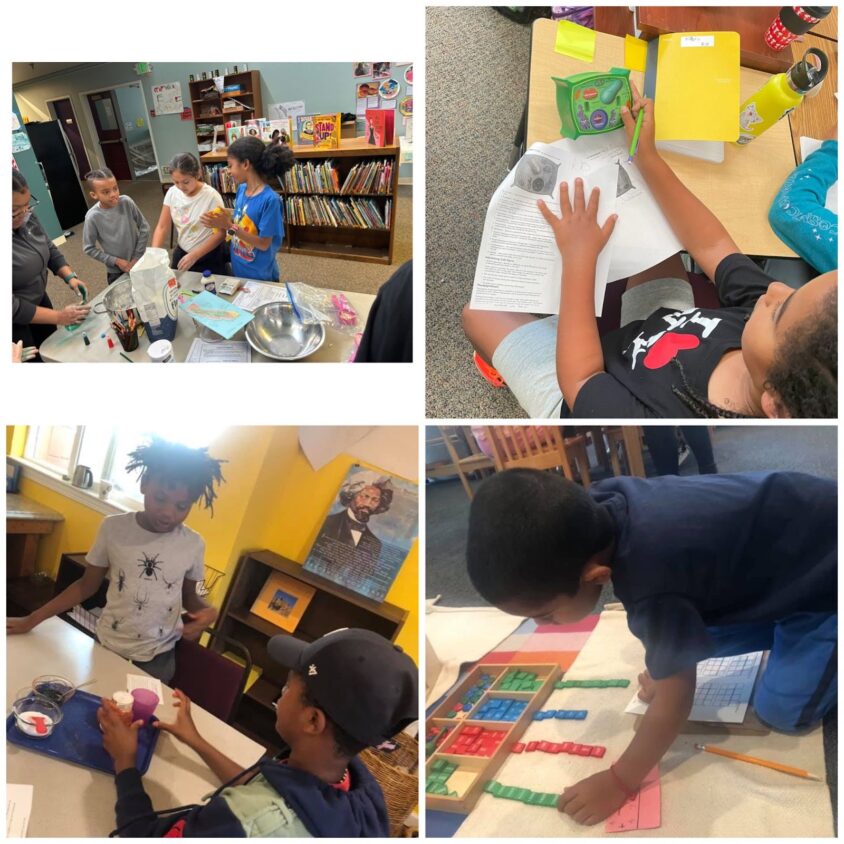
Pear Tree Community School is built upon the highest ideals of High Expectations with Unlimited Opportunities for both the adults and learners in their community.
Pear Tree Community School thrives on the belief that every child can excel. Educators foster a flexible environment where students engage with materials at their “just right” level. Early learners might use manipulatives to grasp math concepts, while older students could explore advanced online programs like Zearn and Khan Academy. Each classroom has two educators, which ensures individual attention and meaningful feedback for all. Daily reflections help students build independence and growth mindsets, while educators continuously adapt lessons based on student understanding.
But excellence isn’t just about academics. Pear Tree actively dismantles bias. Educators invite colleagues to observe their classrooms using an anti-bias protocol, identifying and eliminating materials that may hinder equity.
Listen to Transcend School Design Partner Celestina De La Garza talk about how Pear Tree embodies the High Expectations for All Students leap.
Whole Child Focus
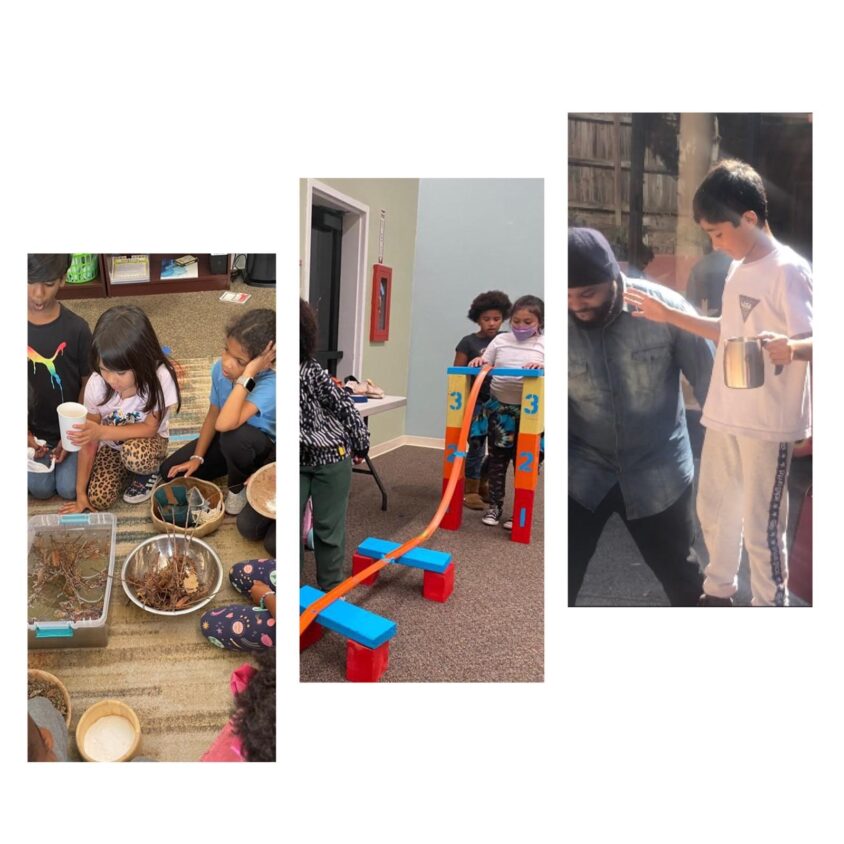
Inspired by Paulo Freire’s guiding principle that “No one can be authentically human while he prevents others from being so,” Pear Tree embraces Whole Child Focus. This philosophy recognizes education as a social-emotional journey interwoven with academics. During morning circles, students share their personal stories, creating a safe space where every experience is valued. Educators, too, are lifelong learners, continually developing in areas like diversity, equity, and inclusion. They understand how personal biases and past traumas can impact their ability to support students.
Positive relationships are key. From student-to-student interactions founded on mutual respect to the school’s effort to create a nurturing community, Pear Tree fosters healthy emotional development. The school grounds, with gardens and activity spaces, offer opportunities for students to connect with the earth, engage in physical activity, and practice mindfulness—a truly holistic approach to nurturing their physical and mental health. Pear Tree Community School illustrates a harmonious blend of social-emotional learning with traditional education, reflecting a profound understanding that the heart of education is the education of the heart.
Listen to Transcend School Design Partner Sarah Tucker talk about how Pear Tree embraces the Whole Child Focus leap.
Rigorous Learning
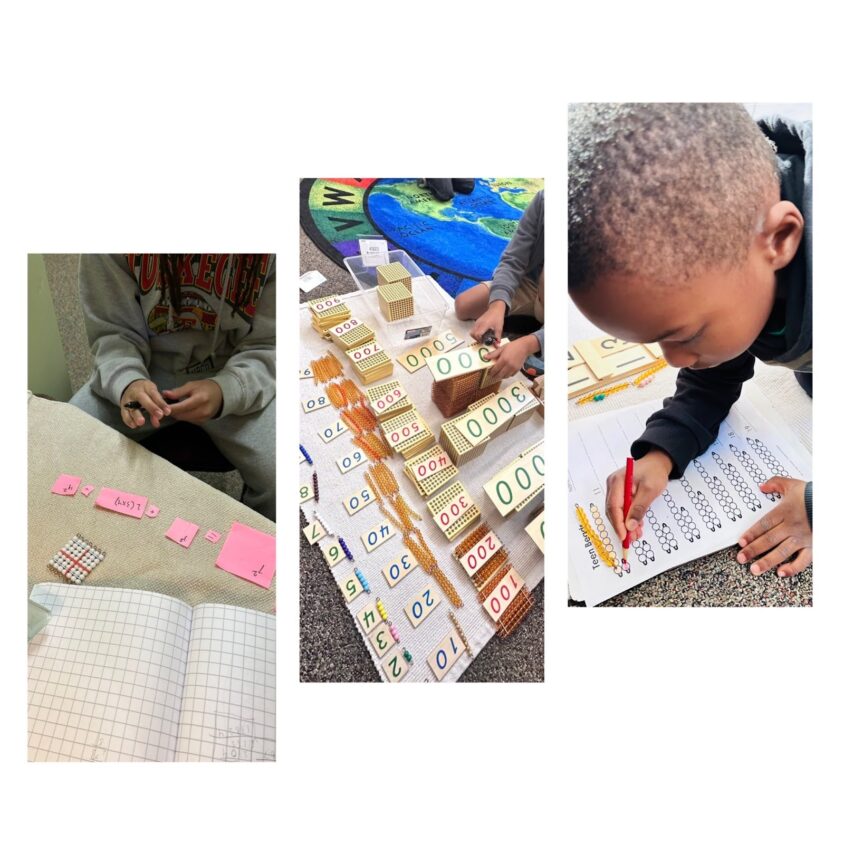
Curiosity fuels Rigorous Learning at Pear Tree. Montessori-trained educators encourage students as young as two to engage in the process of constructing, deconstructing, and applying knowledge. Students progress through scaffolded learning, gaining deep understanding of concepts. For example, young learners engage in three scaffolded levels of mathematical conceptual understanding: concrete math with manipulatives (counting bears), pictorial math (removing manipulatives but drawing concepts), and abstract math (formulaic).
In the age of YouTube when children can be conditioned to prefer short clips of passive information, the Pear Tree students learn that the process of learning entails uninterrupted time, deep thinking, obtaining resources, and productive struggle. As they mature, classroom discussions and debates become central to developing critical thinking skills. Students learn to take a stand, listen to opposing viewpoints, and refine their own positions through intellectual challenge.
Pear Tree also emphasizes high-quality writing. Each month, students research topics aligned with the school’s focus and produce written pieces for their community. They may write about inspiring change-makers or create plays and programs to educate others. This process not only sharpens critical thinking but also empowers students to develop their unique voices.
Listen to Transcend School Design Partner Lyric Flood talk about how Pear Tree fuels Rigorous Learning for all students.
Social Consciousness & Action
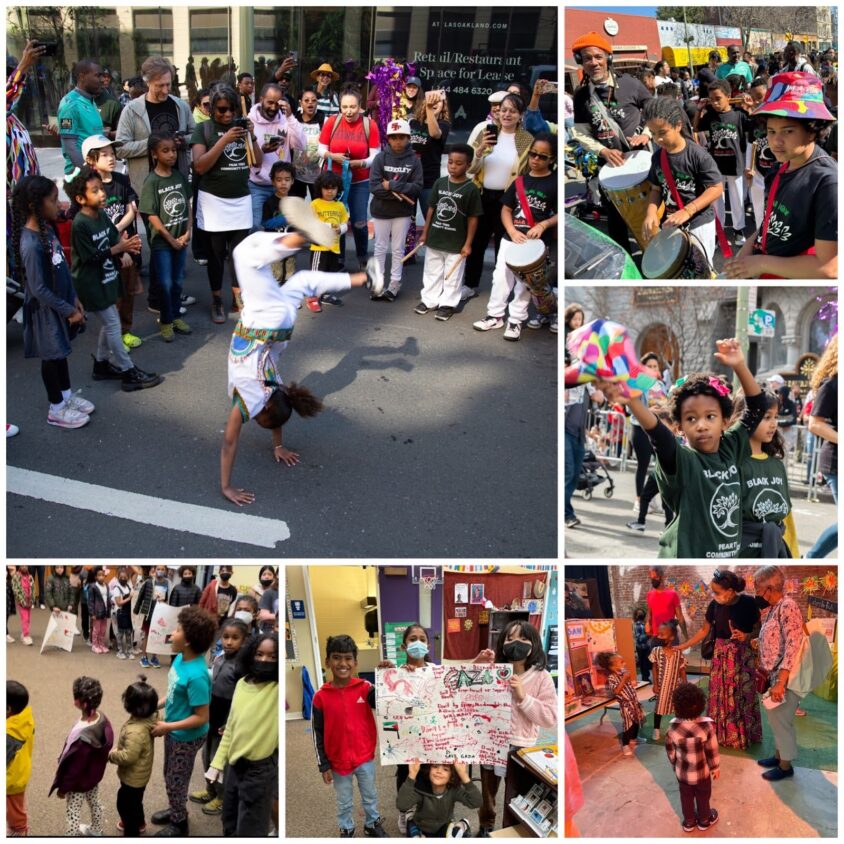
The Social Consciousness & Action leap is central to the ethos of Pear Tree Community School. As the founder and school leader, Michele Hamilton ensures that both the academic and social-emotional curricula are infused with principles of social justice, drawing from the Montessori model. This approach fosters active learning and engagement with diverse perspectives, enriching students’ understanding of the complexities of the world. However, Michele emphasizes the importance of allowing children to be children within the Pear Tree community, with adults serving to protect them. While the curriculum is informed by social justice, explicit mention of specific issues like racism or sexism is avoided. Instead, the focus is on fostering discovery from multiple viewpoints, nurturing compassion and empathy in learners.
Through this approach, students develop both cognitive and emotional awareness, enabling them to recognize and address instances of both justice and injustice. A prime example of this approach is seen in the monthly themes celebrating various cultures and histories, such as Black History Month, Hispanic Heritage Month, and Indigenous People’s History Month. Students immerse themselves in learning about different cultures, sharing their understanding through presentations, portfolios, and initiatives that highlight their cultural responsiveness across intellectual, civic, and artistic domains.
Social consciousness also serves as a cornerstone for the professional development of Pear Tree Community School staff. Michele dedicates significant effort to fostering an environment where staff can examine their mindsets and align with the school’s values. Grounding professional development in texts by influential figures like Paulo Freire and bell hooks, alongside her own research, Michele ensures a holistic approach to adult learning. One innovative example of this is an exercise called “Sculpting,” where staff discuss a social-justice-informed quote in small groups before representing it through human abstract sculptures. This activity fosters intellectual rigor, mindfulness, and creativity, sparking dialogue about transformative educational practices.
With a focus on social consciousness and action, Pear Tree Community School cultivates educators who design liberatory learning experiences. This emphasis enables both young and adult learners to collaborate in addressing real social challenges, contributing to a more just and equitable society.
Listen to Transcend School Design Partner Amore Porter talk about how Pear Tree centers the Social Consciousness & Action leap.
Transcend supports communities to create and spread extraordinary, equitable learning environments.

